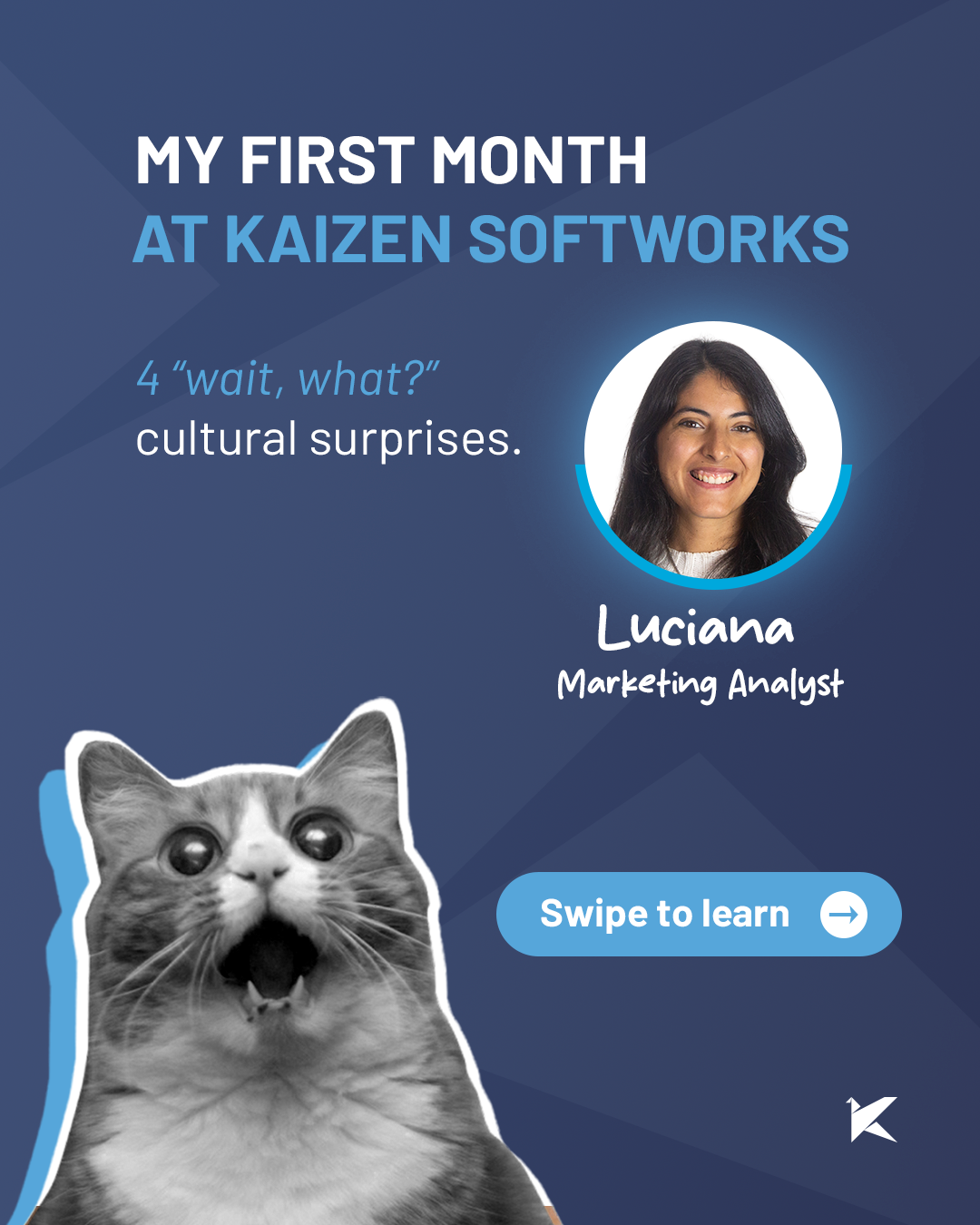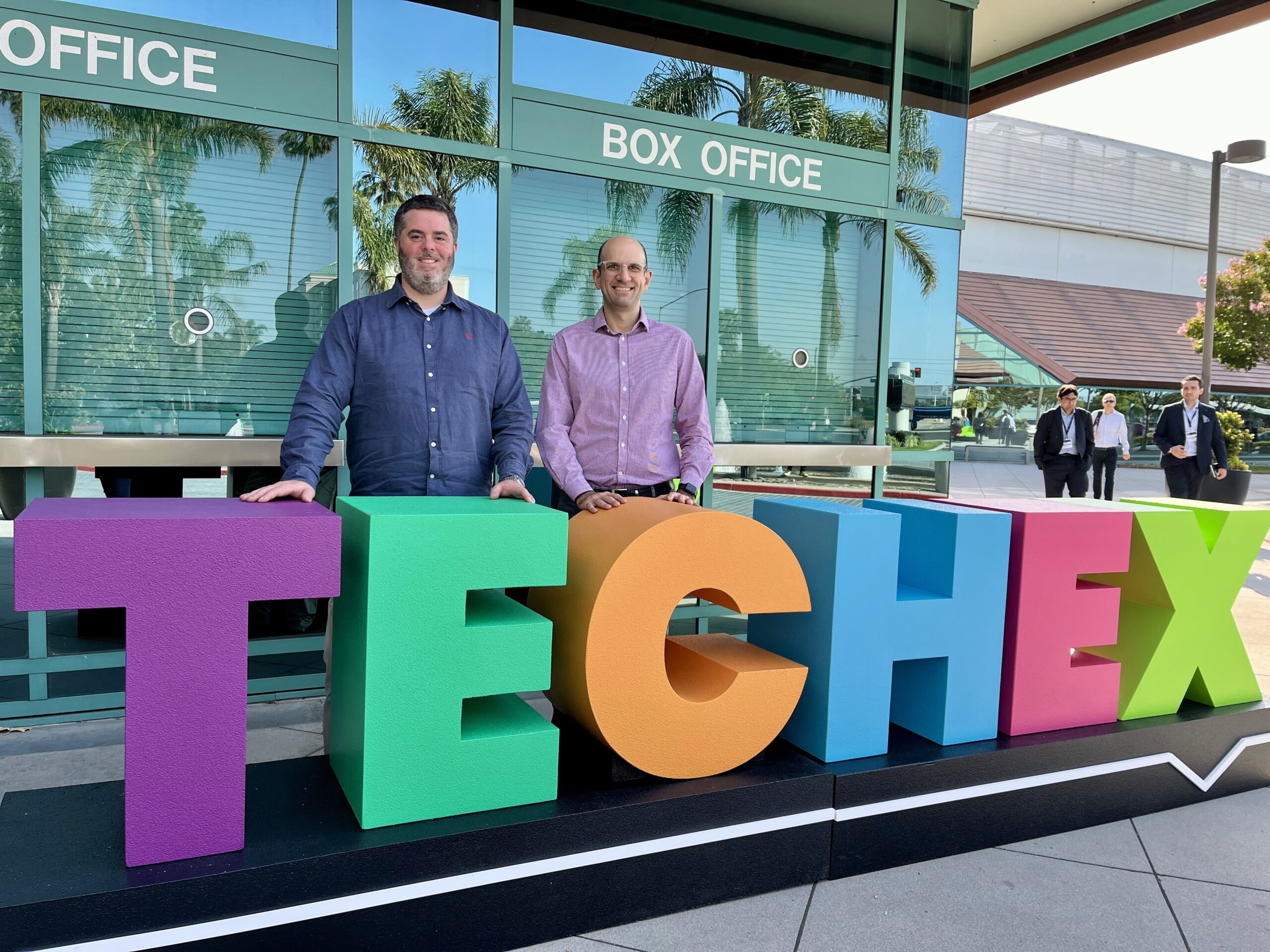Before joining Kaizen Softworks, I came from traditional companies, places where bureaucracy, rigid processes, and top-down decisions shaped the company culture. Being in the office wasn’t optional, it was mandatory, and there were few real alternatives for collaboration.
I applied to Kaizen based on what I saw on their website and social media (it looked like a great place to work), but I didn’t know much beyond the surface. The real surprise came during the interview process, when I had my first-ever cultural interview. The focus wasn’t just on what I could do, but on who I was and whether our values aligned. I also got a deeper look into how Kaizen works day to day, and honestly, it all sounded almost too good to be true. I finally understood why some people joke, “Come on, don’t lie to me.”
4 Cultural Surprises I Didn’t See Coming
1. Participatory decision-making from day one
I joined Kaizen on May 20th and was immediately invited to a meeting to improve our biweekly all-hands, where teams share updates to keep communication transparent. I thought I’d just listen in, but they asked for my input. At Kaizen, you’re expected to participate and help shape decisions, no matter your role or how new you are.
As someone a bit shy at first, I’m still getting used to it, but it builds a real sense of belonging from day one.
Another surprise was when we moved to a new office, the whole team helped choose the space, and one of the top priorities was having a good grill for BBQs. Even the layout was designed together.
This was a clear contrast to the top-down structures I was used to, and showed me how different a participatory culture can feel. People step into challenges when needed and return to their roles once they’re resolved. Leadership here is about guidance and collaboration, not giving orders.

2. Transparent and collaborative salary policy
This completely blew my mind. Salaries aren’t defined by “management” behind closed doors. Instead, there’s an internal compensation committee made up of team members (not executives) who openly propose, discuss, and adjust salary bands. The process is based on multiple factors, market benchmarks, the health of the company, years of experience, each person’s responsibilities and achievements.
Twice a year, the committee proactively reviews everyone’s compensation, but if someone wants to bring up their case at any other time, they’re free to do so. There are weekly open meetings where anyone can join, ask questions, and have open conversations about their situation. Everything is handled with transparency, care, and context.
This is one of the clearest examples of collaborative salary policies in tech companies, and a big reason why Kaizen’s work culture feels so fair and empowering.

3. Feedback isn’t a once-a-year event
Here, feedback isn’t something to fear, it’s part of the everyday flow. From my first week, people shared comments and suggestions in a way that felt casual but meaningful, always focused on helping me grow. At Kaizen, feedback isn’t something formal or intimidating. It’s part of the day-to-day, and it flows in both directions.
The company culture of continuous improvement is strong, and it goes beyond just professional growth. There’s a real interest in seeing each person evolve, not only in their role but also in how they collaborate and show up as part of the team.
Unlike in other companies where feedback can feel awkward or tense, here it’s an open, ongoing conversation. Sprint by sprint, things get adjusted and improved together. It’s one of the clearest examples I’ve seen of how feedback works in a tech team like this: honest, helpful, and human.
4. The office as a place to connect, not to control
The office environment surprised me from day one, and honestly, it still does. No one’s keeping track of whether you’re there or not, you’re free to come in if and when it works for you. What’s special is that people genuinely want to go. It’s a space where work happens, of course, but also where connections grow naturally. There’s always something going on: BBQs at lunch, birthday cakes, casual chats over mate, cozy board game afternoons in winter, and (so I’ve heard) sunset hangs by the pool in summer (so ready for it).
In the marketing team, for example, we use office meetups to reflect on the previous sprint and plan the next one. It’s a social, relaxed, and genuinely valuable space, so different from the environments I knew before.
What this experience is teaching me
Kaizen has shown me that structure doesn’t have to look traditional to be effective. There’s clarity, progress, and high-quality results, just with a different mindset.
I’m still getting used to some things, and surprises keep popping up, but I can already tell this is going to be a unique and meaningful learning experience. I’m all in.





